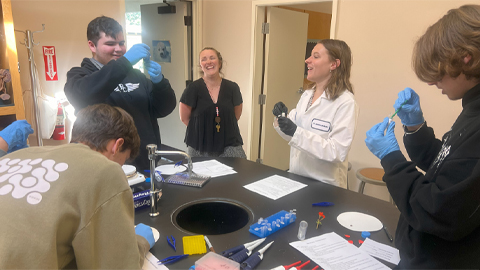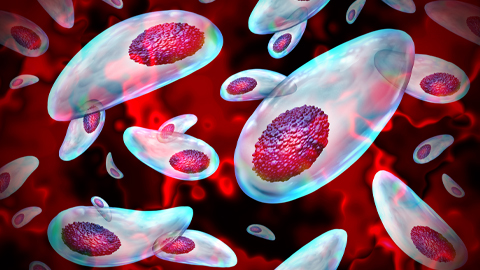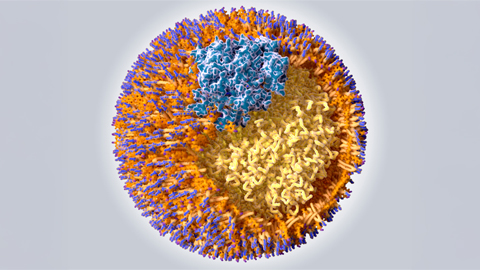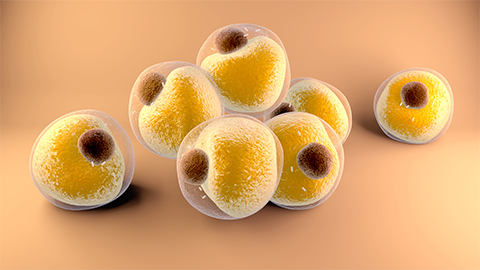Study links long-term consumption of deep-fried oil with increased neurodegeneration
A new study found higher levels of neurodegeneration in rats that consumed reused deep fried cooking oils and their offspring compared to rats on a normal diet. Deep frying, which involves completely submerging food in hot oil, is a common method of food preparation around the world.
Results from the study also suggest that the increased neurodegeneration is tied to the oil’s effects on the bidirectional communication network between the liver, gut and brain. The liver–gut–brain axis plays a crucial role in regulating various physiological functions, and its dysregulation has been associated with neurological disorders.

Kathiresan Shanmugam, an associate professor from Central University of Tamil Nadu in Thiruvarur, led the research team.
“Deep-frying at high temperatures has been linked with several metabolic disorders, but there have been no long-term investigations on the influence of deep-fried oil consumption and its detrimental effects on health,” said Shanmugam, formerly at Madurai Kamaraj University, Madurai. “To our knowledge we are first to report long-term deep-fried oil supplementation increases neurodegeneration in the first-generation offspring.”
Sugasini Dhavamani, a research collaborator from the University of Illinois at Chicago, will present the research at Discover BMB, the annual meeting of the American Society for Biochemistry and Molecular Biology, which will be held March 23–26 in San Antonio.
Deep frying food not only adds calories; reusing the same oil for frying, a common practice in both homes and restaurants, removes many of the oil’s natural antioxidants and health benefits. Oil that is reused also can contain harmful components such as acrylamide, trans fat, peroxides and polar compounds.
To explore the long-term effects of reused deep-fried frying oil, the researchers divided female rats into five groups that each received either standard chow alone or standard chow with 0.1 ml per day of unheated sesame oil, unheated sunflower oil, reheated sesame oil or reheated sunflower oil for 30 days. The reheated oils simulated reused frying oil.
Compared with the other groups, the rats that consumed reheated sesame or sunflower oil showed increased oxidative stress and inflammation in the liver. These rats also showed significant damage in the colon that brought on changes in endotoxins and lipopolysaccharides — toxins released from certain bacteria. “As a result, liver lipid metabolism was significantly altered, and the transport of the important brain omega-3 fatty acid DHA was decreased. This, in turn, resulted in neurodegeneration, which was seen in the brain histology of the rats consuming the reheated oil as well as their offspring.”
Additional studies in which MSG was used to induce neurotoxicity in the offspring showed that the offspring that consumed the reheated oils were more likely to show neuronal damage than the control group receiving no oil or those that received unheated oil.
Although more studies are needed, the researchers say that supplementation with omega-3 fatty acids and nutraceuticals such as curcumin and oryzanol might be helpful in reducing liver inflammation and neurodegeneration. They added that clinical studies in humans are needed to evaluate the adverse effects of eating fried foods, especially those made with oil that is used repeatedly.
As a next step, the researchers would like to study the effects of deep-frying oil on neurodegenerative diseases such as Alzheimer’s and Parkinson’s as well as on anxiety, depression and neuroinflammation. They would also like to further explore the relationship between gut microbiota and the brain to identify potential new ways to prevent or treat neurodegeneration and neuroinflammation.
Sugasini Dhavamani will present this research during a poster session from 4:30 to 6:30 p.m. CDT on Sunday, March 25, in the exhibit hall of the Henry B. González Convention Center (Poster Board No. 326) (abstract).
Enjoy reading ASBMB Today?
Become a member to receive the print edition four times a year and the digital edition monthly.
Learn moreGet the latest from ASBMB Today
Enter your email address, and we’ll send you a weekly email with recent articles, interviews and more.
Latest in Science
Science highlights or most popular articles

E-cigarettes drive irreversible lung damage via free radicals
E-cigarettes are often thought to be safer because they lack many of the carcinogens found in tobacco cigarettes. However, scientists recently found that exposure to e-cigarette vapor can cause severe, irreversible lung damage.

Using DNA barcodes to capture local biodiversity
Undergraduate at the University of California, Santa Barbara, leads citizen science initiative to engage the public in DNA barcoding to catalog local biodiversity, fostering community involvement in science.

Targeting Toxoplasma parasites and their protein accomplices
Researchers identify that a Toxoplasma gondii enzyme drives parasite's survival. Read more about this recent study from the Journal of Lipid Research.

Scavenger protein receptor aids the transport of lipoproteins
Scientists elucidated how two major splice variants of scavenger receptors affect cellular localization in endothelial cells. Read more about this recent study from the Journal of Lipid Research.

Fat cells are a culprit in osteoporosis
Scientists reveal that lipid transfer from bone marrow adipocytes to osteoblasts impairs bone formation by downregulating osteogenic proteins and inducing ferroptosis. Read more about this recent study from the Journal of Lipid Research.

Unraveling oncogenesis: What makes cancer tick?
Learn about the ASBMB 2025 symposium on oncogenic hubs: chromatin regulatory and transcriptional complexes in cancer.

